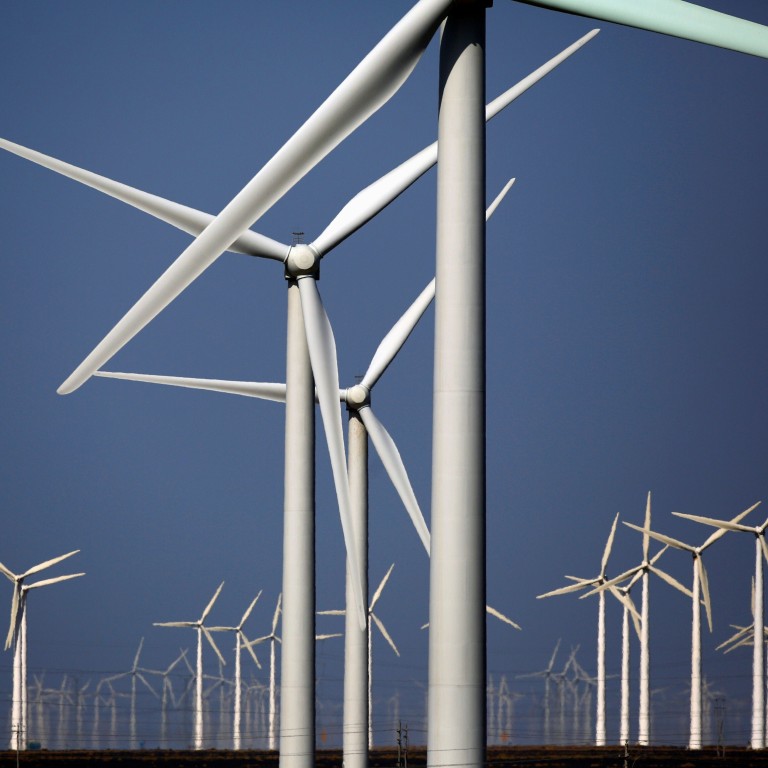
Hong Kong at front and centre in push for ‘green capital’
- China’s renewable energy industry is poised to make the world’s largest greenhouse gas emitter a carbon-neutral country in less than four decades, and this city will play a key role in seeing it through to reality
The Greater Bay Area is expected to emerge with Asia’s largest capital pool, and Hong Kong will play a key part in it. In the coming years, that may be the most significant story for Hong Kong and the Asia-Pacific region as a whole, despite all the attention-grabbing headlines about the city’s unsettling politics. Seen from financial and economic perspectives, Hong Kong has never had a brighter future.
Far from competing against each other, Hong Kong, Shenzhen, Guangzhou and Macau will have bourses that complement each other respectively in capital expertise, tech development, a huge carbon-trading platform and a Nasdaq-like exchange for start-ups and high-growth companies.
Following President Xi Jinping’s unexpected pledge at the United Nations General Assembly in September to make China carbon neutral in four decades, a carbon futures exchange is due to launch this year in Guangzhou. Though the China Securities Regulatory Commission, the mainland regulator, has approved the Guangzhou exchange, it will take several years to develop the structure and build up markets, especially one for carbon trading.
Greater Bay Area to provide new growth engine for Hong Kong accountants
Eventually over the next decade, every mainland company or corporate entity will have to add “green accounting” to their financial audits. That means every aspect of their output, in all goods and services, will have to be calculated for carbon emissions. Companies that cannot reduce their emissions on schedule will have to buy credits to offset carbon excesses, presumably on the Guangzhou exchange. The Hong Kong exchange is wise to tap into this potential pool by taking a minority stake. It is the first equity investment in a mainland futures exchange by a non-mainland investor.
The Guangzhou and Macau exchanges will add to the US$8.84 trillion of combined capitalisation of the Hong Kong and Shenzhen markets, collectively the single largest pool of capital in Asia, if not the world. The fact that policymakers are allowing Hong Kong to take a stake in the Guangzhou exchange underscores its importance within the GBA. Hong Kong can offer deep experience and expertise. Its exchange is currently already the world’s biggest listed operator of financial marketplaces by capitalisation, and making it a partner will add much needed gravitas to the Guangzhou exchange.
China’s renewable energy industry is poised to make the world’s largest greenhouse gas emitter a carbon-neutral country in less than four decades, at a cost of about US$5 trillion. Guangzhou has effectively been guaranteed a giant chunk of that huge market. Meanwhile, each of the four financial markets in the GBA will have a unique role and clear financial product differentiation. Southern China is set to become a great engine of wealth creation in the coming decades, and Hong Kong is at the front and centre.

